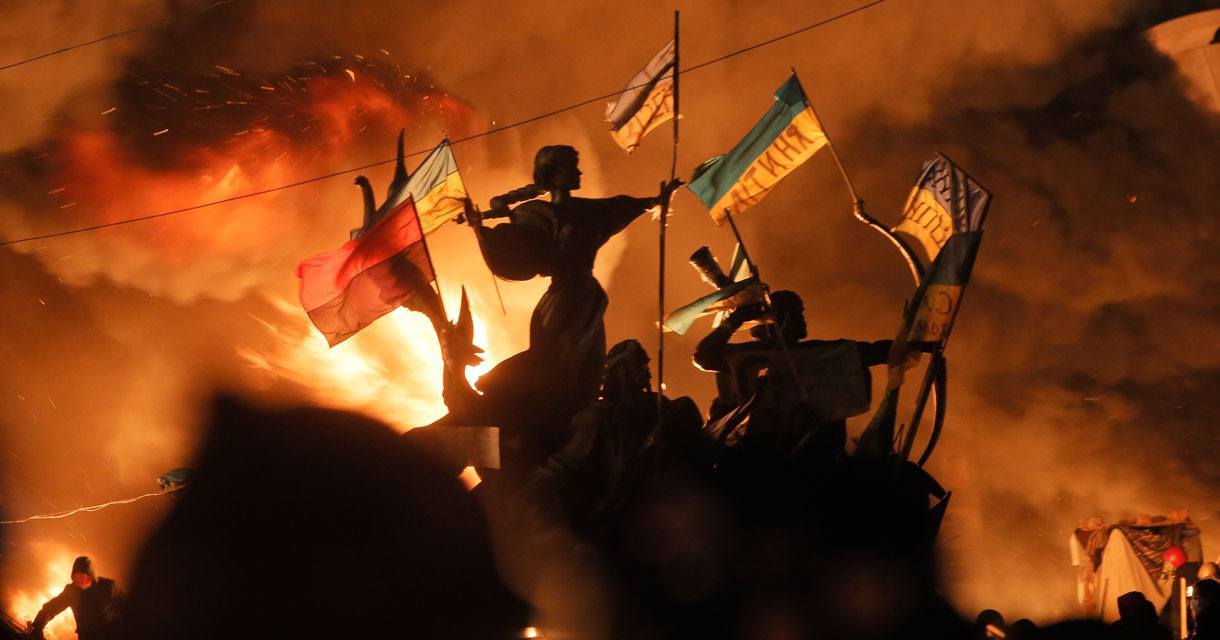
Democracy was the most successful political idea of the 20th century. Why has it run into trouble, and what can be done to revive it?
Between 1980 and 2000 democracy experienced a few setbacks, but since 2000 there have been many.
THE protesters who have overturned the politics of Ukraine have many aspirations for their country. Their placards called for closer relations with the European Union (EU), an end to Russian intervention in Ukraine’s politics and the establishment of a clean government to replace the kleptocracy of President Viktor Yanukovych. But their fundamental demand is one that has motivated people over many decades to take a stand against corrupt, abusive and autocratic governments. They want a rules-based democracy.
It is easy to understand why. Democracies are on average richer than non-democracies, are less likely to go to war and have a better record of fighting corruption. More fundamentally, democracy lets people speak their minds and shape their own and their children’s futures. That so many people in so many different parts of the world are prepared to risk so much for this idea is testimony to its enduring appeal.
Yet these days the exhilaration generated by events like those in Kiev is mixed with anxiety, for a troubling pattern has repeated itself in capital after capital. The people mass in the main square. Regime-sanctioned thugs try to fight back but lose their nerve in the face of popular intransigence and global news coverage. The world applauds the collapse of the regime and offers to help build a democracy. But turfing out an autocrat turns out to be much easier than setting up a viable democratic government. The new regime stumbles, the economy flounders and the country finds itself in a state at least as bad as it was before. This is what happened in much of the Arab spring, and also in Ukraine’s Orange revolution a decade ago. In 2004 Mr Yanukovych was ousted from office by vast street protests, only to be re-elected to the presidency (with the help of huge amounts of Russian money) in 2010, after the opposition politicians who replaced him turned out to be just as hopeless.
Click here to see the whole article in the Economist
It is easy to understand why. Democracies are on average richer than non-democracies, are less likely to go to war and have a better record of fighting corruption. More fundamentally, democracy lets people speak their minds and shape their own and their children’s futures. That so many people in so many different parts of the world are prepared to risk so much for this idea is testimony to its enduring appeal.
Yet these days the exhilaration generated by events like those in Kiev is mixed with anxiety, for a troubling pattern has repeated itself in capital after capital. The people mass in the main square. Regime-sanctioned thugs try to fight back but lose their nerve in the face of popular intransigence and global news coverage. The world applauds the collapse of the regime and offers to help build a democracy. But turfing out an autocrat turns out to be much easier than setting up a viable democratic government. The new regime stumbles, the economy flounders and the country finds itself in a state at least as bad as it was before. This is what happened in much of the Arab spring, and also in Ukraine’s Orange revolution a decade ago. In 2004 Mr Yanukovych was ousted from office by vast street protests, only to be re-elected to the presidency (with the help of huge amounts of Russian money) in 2010, after the opposition politicians who replaced him turned out to be just as hopeless.
Click here to see the whole article in the Economist
No comments:
Post a Comment